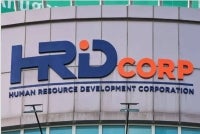Malaysia's skilled workforce and English proficiency attract German investors - Analyst
Efficient execution of development plans key to attracting German investments to Malaysia

KUALA LUMPUR - A senior analyst with a strategic advisory firm says the efficient execution of development plans like the National Energy Transition Roadmap (NETR) and the New Industrial Master Plan (NIMP) are vital ingredients to lure German investments to Malaysia.
Bower Group Asia's Darryl Tan said among the areas German firms are targeting abroad is the renewable energy sector for which Malaysia has the potential to emerge as a regional champion.
Berlin is pushing for energy diversification as the Russia-Ukraine war has led to high electricity prices and increasing costs for German firms.
"Malaysia, itself is pushing for renewable energy, can provide a cost-effective destination for increased German investments," he said when analysing Prime Minister Datuk Seri Anwar Ibrahim's visit to Germany last week on the Bernama World programme aired over Bernama TV.
Malaysia has been recognised as the best country in Southeast Asia in the Energy Transition Index 2023 by the World Economic Forum.
Besides the energy roadmap and NIMP, Tan emphasised that incentives to encourage Malaysia's quest to emerge as a global services hub will be an added sweetener for German firms to target Malaysia.
He also expressed the hope that with the new-found partnership between both countries, Germany would provide fairer treatment for palm oil exports which are often hampered by non-tariff barriers imposed by the European Union.
Other sectors that hold promise for increased bilateral linkages include upskilling in small and medium scale enterprises, transfer of engineering technologies, semiconductors, aerospace and medical devices.
Further incentives for German firms to look to Malaysia include its relatively high proficiency in English after Singapore and the Philippines.
Malaysia's skilled labour force, with 39 per cent of graduates in 2020 majoring in STEM (science, technology, engineering and mathematics), was also a pull factor.
"This certainly looks attractive since Germany focuses on technology and digital industries," Tan said.
No less important was Malaysia's ecosystem, including industrial parks and clusters dedicated to specific industries, particularly in the electrical and electronics sectors.
The wide system of local suppliers who can support foreign companies operating within these industrial parks was also an incentive for foreign companies to come here, he added.
Meanwhile, Azmi Hassan, a geostrategist at Nusantara Academy, said the pledge by German political leaders and corporate giants to invest a staggering RM45.4 billion in Malaysia is reflective of their confidence in the country’s economic potential and political stability. He said Malaysia should look forward to reaping the benefits of the huge investment sum, especially in high technology.
Corporate giants who met Malaysian officials must have been further encouraged that the proposed investments would be speedily and smoothly approved by the Malaysian Industrial Development Authority (MIDA) and the Ministry of Investment, Trade and Industry (MITI). - BERNAMA
Download Sinar Daily application.Click Here!














